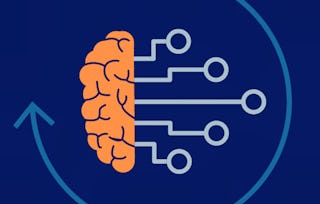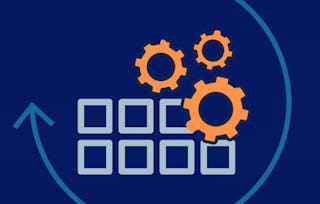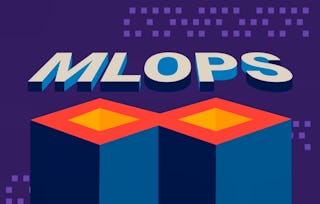Welcome to the fourth course in the Building Cloud Computing Solutions at Scale Specialization! In this course, you will build upon the Cloud computing and data engineering concepts introduced in the first three courses to apply Machine Learning Engineering to real-world projects. First, you will develop Machine Learning Engineering applications and use software development best practices to create Machine Learning Engineering applications. Then, you will learn to use AutoML to solve problems more efficiently than traditional machine learning approaches alone. Finally, you will dive into emerging topics in Machine Learning including MLOps, Edge Machine Learning and AI APIs.

Cloud Machine Learning Engineering and MLOps
Seize the savings! Get 40% off 3 months of Coursera Plus and full access to thousands of courses.

Cloud Machine Learning Engineering and MLOps
This course is part of Building Cloud Computing Solutions at Scale Specialization

Instructor: Noah Gift
9,452 already enrolled
Included with
87 reviews
Recommended experience
Skills you'll gain
Details to know

Add to your LinkedIn profile
3 assignments
See how employees at top companies are mastering in-demand skills

Build your subject-matter expertise
- Learn new concepts from industry experts
- Gain a foundational understanding of a subject or tool
- Develop job-relevant skills with hands-on projects
- Earn a shareable career certificate

There are 3 modules in this course
This week, you will learn about the methodologies involved in Machine Learning Engineering. By the end of the week, you will be able to develop Machine Learning Engineering applications and use software development best practices to create Machine Learning Engineering applications.
What's included
15 videos6 readings1 assignment3 discussion prompts1 ungraded lab
This week, you will learn about AutoML and how to use it to build efficient Machine Learning solutions with little to no code. These technologies include Ludwig, Google AutoML, Apple Create ML and Azure Machine Learning Studio. You will apply these solutions by using both open source and Cloud AutoML technology.
What's included
21 videos2 readings1 assignment3 discussion prompts
This week, you will learn MLOps strategies and best practices in designing Cloud solutions. Then, you will explore Edge Machine Learning and how to use AI APIs. You will apply these strategies to build a low code or no code Cloud solution that performs Natural Language Processing or Computer Vision.
What's included
22 videos4 readings1 assignment4 discussion prompts2 ungraded labs
Earn a career certificate
Add this credential to your LinkedIn profile, resume, or CV. Share it on social media and in your performance review.
Instructor

Offered by
Explore more from Cloud Computing
 Status: Free Trial
Status: Free TrialDuke University
 Status: Free Trial
Status: Free TrialDuke University
 Status: Free Trial
Status: Free TrialDuke University
 Status: Free Trial
Status: Free Trial
Why people choose Coursera for their career

Felipe M.

Jennifer J.

Larry W.

Chaitanya A.
Learner reviews
- 5 stars
68.96%
- 4 stars
17.24%
- 3 stars
9.19%
- 2 stars
4.59%
- 1 star
0%
Showing 3 of 87
Reviewed on Jun 1, 2022
Great course to know practical ideas and concepts.
Reviewed on Oct 31, 2022
Great Intro into DevOps and MLOps for beginners, Also good explanation and practical application examples

Open new doors with Coursera Plus
Unlimited access to 10,000+ world-class courses, hands-on projects, and job-ready certificate programs - all included in your subscription
Advance your career with an online degree
Earn a degree from world-class universities - 100% online
Join over 3,400 global companies that choose Coursera for Business
Upskill your employees to excel in the digital economy
Frequently asked questions
To access the course materials, assignments and to earn a Certificate, you will need to purchase the Certificate experience when you enroll in a course. You can try a Free Trial instead, or apply for Financial Aid. The course may offer 'Full Course, No Certificate' instead. This option lets you see all course materials, submit required assessments, and get a final grade. This also means that you will not be able to purchase a Certificate experience.
When you enroll in the course, you get access to all of the courses in the Specialization, and you earn a certificate when you complete the work. Your electronic Certificate will be added to your Accomplishments page - from there, you can print your Certificate or add it to your LinkedIn profile.
Yes. In select learning programs, you can apply for financial aid or a scholarship if you can’t afford the enrollment fee. If fin aid or scholarship is available for your learning program selection, you’ll find a link to apply on the description page.
More questions
Financial aid available,

